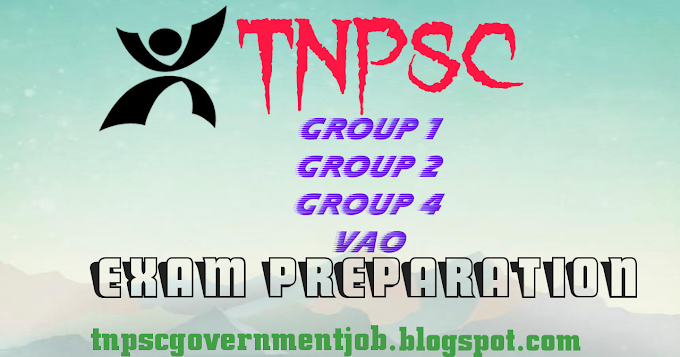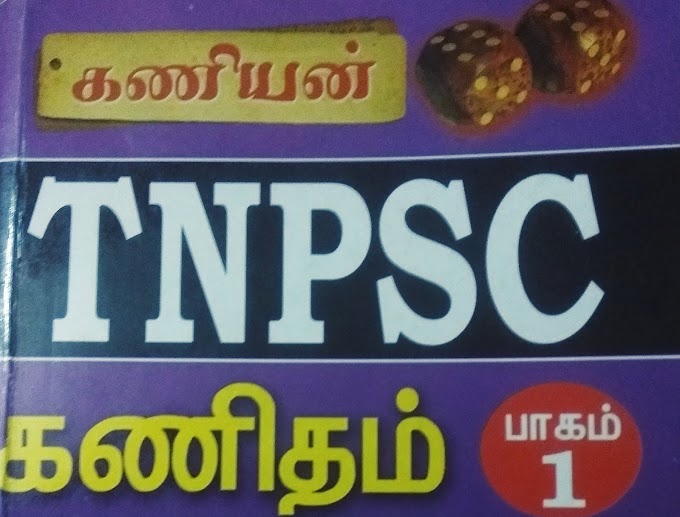IAS EXAM TAMIL AND TELUGU OPTIONAL PAPER SYLLABUS
Tamil and Telugu optional papers in IAS exam are best for regional language are known aspirants best choice and also high scoring papers. The syllabus of both optional papers is less when compared to other like history, geography, public administration, engineering papers, etc...The written of the examination is fully in your regional language (Tamil or Telugu) only.
PAPER-VI & PAPER VII
Optional Subject Papers I & II
TAMIL
PAPER-I
Answers must be written in TamilSECTION - A
Part 1: History of Tamil Language- Major Indian Language Families—The place of Tamil among Indian Languages in general and Dravidian in particular—Enumeration and Distribution of Dravidian languages.
- The language of Sangam Literature—The language of medieval Tamil: Pallava Period only— the Historical study of Nouns, Verbs, Adjectives, Adverbs—Tense markers and case markers in Tamil. Borrowing of words from other languages into Tamil— Regional and social dialects— the difference between literary and spoken Tamil.
- Tolkappiyam-Sangam Literature—The division of Akam and Puram—The secular characteristics of Sangam Literature—The development of Ethical literature— Silappadikaram and Manimekalai.
- The bridal mysticism in Alwar hymns—Minor literary forms (Tutu, Ula, Parani, Kuravanji).
- Social factors for the development of Modern Tamil Literature;
- The novel, Short Story and New Poetry—The impact of various political ideologies on modern writings.
SECTION-B
Part 1: Recent trends in Tamil Studies
- Approaches to criticism: Social, psychological, historical and moralistic—the use of criticism—the various techniques in literature;
- Ullurai, Iraicchi, Thonmam (Myth) Otturuvagam (allegory), Angadam (Satire), Meyappadu, Padimam (image), Kuriyeedu (Symbol), Irunmai (Ambiguity)— The concept of comparative literature-the principle of comparative literature.
- Ballads, Songs, proverbs and riddles— the Sociological study of Tamil folklore.
- Uses of translation—Translation of Tamil works into other languages-Development of journalism in Tamil.
- Concept of Love and War—Concept of Aram-the ethical codes adopted by the ancient Tamils in their warfare-customs beliefs, rituals, modes of worship in the five Thinais.
- The Cultural changes as revealed in post sangam literature—cultural fusion in the medieval period (Jainism and Buddhism).
- The development of arts and architecture through the ages (Pallavas, later Cholas, and Nayaks).
- The impact of various political, social, religious and cultural movements on Tamil Society.
- The role of mass media in the cultural change of contemporary Tamil society.
PAPER-II
Answers must be written in Tamil The paper will require first-hand reading of the text prescribed and will be designed to test the critical ability of the candidate.
SECTION-A
Part 1 : Ancient Literature(1) Kuruntokai (1—25 poems)
(2) Purananuru (182—200 poems)
(3) Tirukkural Porutpal : Arasiyalum Amaichiyalum (from Iraimatchi to Avaianjamai).
Part 2 : Epic Literature
(1) Silappadikaram : Madhurai Kandam only.
(2) Kambaramayanam : Kumbakarunan Vadhai Padalam.
Part 3 : Devotional Literature
(1) Tiruvasagam : Neetthal Vinnappam(2) Tiruppavai : (Full Text).
SECTION-B
Modern Literature
Part 1 : Poetry
(1) Bharathiar : Kannan Pattu
(2) Bharathidasan : Kudumba Vilakku
(3) Naa. Kamarasan : Karappu Malarkal
Prose
(1) Mu. Varadharajanar : Aramum Arasiyalum
(2) C. N. Annadurai : Ye! Thazhntha Tamilagame.
Part 2 : Novel, Short Story and Drama
(1) Akilon ; Chittairappavai
(2) Jayakanthan : Gurupeedam
(3) Cho : Yaurkkum Vetkamillai
Part 3 : Folk Literature
(1) Muthuppattan kathai Edited by Na. Vanamamalai, (Publication : Madurai Kamaraj University).
(2) Malaiyaruvi, Edited by Ki. Va Jagannathan (Publication : Saraswathi Mahal, Thanjavur).
TELUGU syllabus
PAPER-I
Answer must be written in TeluguSECTION-A
Language:1. Place of Telugu among Dravidian languages and its antiquity—Etymological History of Telugu,Tenugu and Andhra.
2. Major linguistic changes in phonological, morphological, grammatical and syntactical levels, from Proto-Dravidian to old Telugu and from old Telugu to Modern Telugu.
3. Evolution of spoken Telugu when compared to classical Telugu-Formal and functional view of Telugu language. 4. Influence of other languages and its impact on Telugu.
5. Modernization of Telugu language :
- Linguistic and literary movements and their role in modernization of Telugu.
- Role of media in modernization of Telugu (News-papers, Radio, TV etc.)
- Problems of terminology and mechanisms in coining new terms in Telugu in various discourses including scientific and technical.
6. Dialects of Telugu—Regional and social variations and problems of Standardization.
7. Syntax—Major divisions of Telugu sentences—simple, complex and compound sentences—Noun and verb predications—Processes of nominalization and relativization—Direct and indirect reporting-conversion processes.
8. Translation—Problems of translation, cultural, social and idiomatic—Methods of translation—Approaches to translation—Literary and other kinds of translation— Various uses of translation.
SECTION-B
Literature:1. Literature in Pre-Nannaya Period—Marga and Desi poetry.
2. Nannaya Period—Historical and literary background of Andhra Mahabharata.
3. Saiva poets and their contribution—Dwipada, Sataka, Ragada, Udaharana.
4. Tikkana and his place in Telugu literature.
5. Errana and his literary works—Nachana Somana and his new approach to poetry.
6. Srinatha and Potana—Their works and contribution.
7. Bhakti poets in Telugu literature—Tallapaka Annamayya, ramadasu, tyagayya. 8. Evolution of prabandhas—Kavya and prabandha.
9. Southern school of Telugu literature-raghunatha Nayaka, chemakura vankatakavi and women poets- Literary forms like yakshagana, prose and padakavita.
10. Modern Telugu Literature and literary forms—Novel, Short Story, Drama, Playlet and poetic forms.
11. Literary Movements : Reformation, Nationalism, Neo-classisicism, Romanticism and Progressive, Revolutionary movements.
12. Digambarakavulu, feminist and dalit Literature.
13. Main divisions of folk literature—Performing folk arts.
PAPER-II
Answer must be written in Telugu This paper will require first hand reading of the prescribed texts and will be designed to test the candidate’s critical ability, which will be in relation to the following approaches :—
(i) Aesthetic approach—Rassa, Dhawani, Vakroti and Auchitya—Formal and Structural-Imagery and Symbolism.
(ii) Sociological, Historical, Ideological, Psychological approaches.
SECTION- A
2. Tikkana-Sri Krishna Rayabaramu (Udyoga parva-3rd Canto verses 1—144).
3. Srinath-Guna Nidhi Katha (Kasikhandam, 4th Canto, verses 76—133).
4. Pingali Surana-sugatri Salinulakatha (Kalapurno-dayamu 4 Canto verses, 60—142).
5. Molla-Ramayanamu (Balakanda including avatarika).
6. Kasula Purushothama Kavi—Andhra Nayaka Satakamu.
SECTION- B
8. Viswanatha Satyanarayana—Andhra prasasti.
9. Devulapalli Krishna Sastry—Krishnapaksham (excluding Uravsi and Pravasam).
10. Sri Sri-Maha prastanam.
11. Jashuva-Gabbilam (Part I).
12. C. Narayana Reddy—Karpuravasanta rayalu.
13. Kanuparti Varalakshmamma—Sarada lekhalu (Part I).
14. Atreya—N.G.O.
15. Racha Konda Viswanatha Sastry—Alpajaeevi.
Related Articles
IAS exam schemes and apply procedures
Ias exam prelims-mains syllabus
Geography optional paper
History of optional paper
Public Administration optional paper
Psychology optional paper
Medical science optional paper
Tamil and Telugu Literature optional paper
Sociology optional paper
Political science and International relations optional paper
Online Test Series
Ancient India History
Indian Polity
Current Affairs
Modern India History
TNPSC Related Articles
Group 1 Exam
Group 2 Main Exam
Tamilnadu government Schemes







